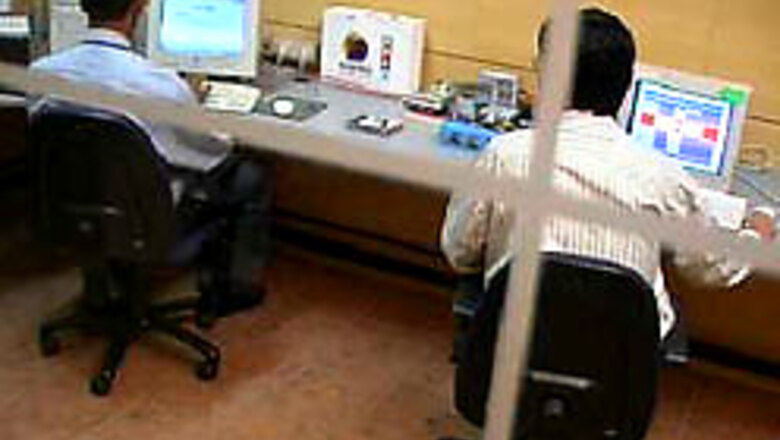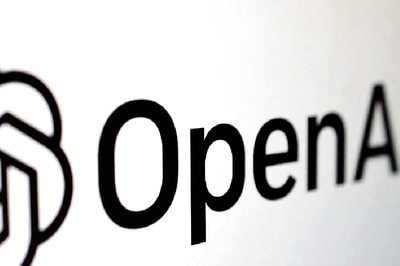
views
New Delhi: Till the other day, the techie was the blue-eyed guy of the Finance Ministry.
Not any more. Or that is exactly what you find when you check the fineprints of the Budget.
Finance Minister P Chidambaram has dropped enough hints that the days of low taxes and subsidies are over for the infotech sector, now that India's IT industry has emerged on top of the world order.
The Budget has imposed an 8 per cent excise duty on packaged software sold over the counter, and a 12 per cent excise duty on personal computers.
However, local PC manufacturers can offset the duty on components by claiming Cenvat credit. It is the 8 per cent excise duty on packaged software that has not gone down well with the IT sector.
The Budget has also increased service tax and broadens the net to cover some previously-excluded IT-related services, which will not only raise costs, but also act as a deterrent to outsourcing work to SMEs.
Software association Nasscom has expressed disappointment with Budget 2005-06, saying the increase in levies of packaged software and on IT hardware would result in higher prices.
"This will result in higher prices and have an adverse impact on millions of customers and on the domestic IT market. It will be a setback to efforts to promote IT utilisation in the Indian economy," says Kiran Karnik, president, Nasscom.
At a time when technology and market demand were driving down prices, "we see this as a retrograde step. We feel this is an intended consequence of adjustments of excise, countervailing duty and hope that the FM will correct this aberration," he said.
He welcomed the National e-Governance Programme, which he expected would take off in a big way bringing benefits to citizens.
Karnik said the interpretation of Section 10A benefits has not been addressed in the Budget and urged the Finance Minister to settle them separately. Section 10A gives tax exemption to software export revenues.
Nandan M. Nilekani, President, CEO, Infosys Technologies said on the IT front, the Budget has been neutral.
However, the proposed 8 per cent duty on over-the-counter packaged software impedes IT penetration to the vast majority of the masses.
The review of FBT by removing certain genuine business expenditure from its purview is welcome. However, the larger administrative issue that the industry is apprehensive about on FBT has not been addressed.
PAGE_BREAK
Ravi Venkatesan, Chairman, Microsoft India said: "The imposition of additional excise duty on packaged software as well as on computers could increase the glaring divide that exists today between rural and urban India, in terms of technology access and the dismal rates of PC penetration currently pegged at 14 PCs per 1000 people."
"It would also be a severe setback to the fledgling domestic software industry."
Rajiv C Mody, Chairman and CEO, Sasken Communication Technologies Limited said: "We are glad to note that there has been some degree of rationalization in Fringe Benefit Tax with exemptions on the superannuation fund contribution up to Rs 1 lakh and reduction in FBT rates for travel from 20 per cent to 5 per cent for our non-software businesses."
"The increase in Service Tax has come as a bit of a surprise and will impact us going forward. Also, packaged software will now attract an Excise Duty of 8 per cent. This will increase the cost of some of our software purchases."
"Minimum Alternate Tax has been increased from 7.5 per cent to one per cent and Long term capital gains hitherto not included in calcula ion of MAT will have to be included; this will also impact us," he said.
B Ramalinga Raju, Chairman, Satyam Computer Services Limited said: "The Budget has largely been neutral for the IT services sector though the stress on infrastructure and education should be positive for the industry from a long term perspective."
"The imposition of 8 per cent excise duty on packaged software and the increase in service tax apart from bringing items like international air travel under the service tax ambit are dampeners that could have been best avoided."
However, the levy of 4 per cent CVD on all imports and 8 per cent excise duty on packaged software are disappointing.
Shiv Nadar, Founder HCL Technologies said: "The Budget gives substantial investments into the National e-Governance initiative, which is a positive for the Indian IT industry in terms of new business opportunities."
Vinod Agarwal, Chairman, CEO, President, SemIndia Inc said the Budget augurs well for semiconductor and other high-end manufacturing industries. The Government of India has acknowledged the importance of these industries to the growth of the Indian IT industry and the economy, as a whole.
As the first to announce a $3 billion semiconductor manufacturing, assembly and testing facility, SemIndia believes the budget offers the right incentives required for this industry to establish its roots and make domestic manufacturing of semiconductors and electronics a viable opportunity, he said.




















Comments
0 comment